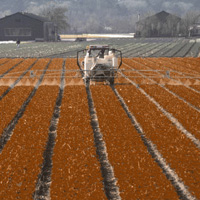
Experts Meet to Link Local Knowledge with Global Science
Monday, March 01, 2004 | Alexandria, EG
Some 200 scientists and local and indigenous experts will meet in Alexandria, Egypt for the first conference to highlight the importance of traditional and indigenous knowledge in improving public understanding of local and global environmental processes.
The conference, called Bridging Scales and Epistemologies: Linking Local Knowledge and Global Science in Multi-Scale Assessments will be held March 17-20, 2004 at the Bibliotheca Alexandrina in Alexandria, Egypt . It will examine the contributions of both Western and non-Western knowledge in solving the environmental challenges that face the world.
“Environmental changes affect people globally and locally. Yet, international scientific assessments often ignore the vast knowledge and expertise of local and indigenous peoples,” said Dr. Walt Reid, executive director of the Millennium Ecosystem Assessment. “This ranges from detailed records of species diversity to stories of species migration and weather patterns that are passed down through village elders, hunters, and farmers.”
The speakers will include:
-
Dr. Ismail Serageldin, director, Bibliotheca Alexandrina
-
Tashi Duojie, Snowland Green River Association, the first NGO of Tibetan nomads
-
Tatyana Petrova, scientist, Russian Association of Indigenous Peoples of the North
-
Marcela Machaca Mendieta, Quechua Indian from Peru
-
Sarah Laird, expert on the risks and benefits of the commercial use of local knowledge
-
Thomas J. Wilbanks, Oak Ridge National Laboratory, an expert on linking local with global assessment information
The conference is part of the Millennium Ecosystem Assessment (MA), the first global scientific study of its kind. It is a four-year $21 million project launched in 2001 by UN Secretary General Kofi Annan. The MA will provide governments, the private sector, and local organizations with better information on how to restore, maintain, or enhance the productivity of the ecosystems that support life on Earth.
The conference is sponsored by the MA, the Swedish International Biodiversity Programme, The Christensen Fund, the Canadian International Development Agency, the International Council for Science (ICSU), and the Bibliotheca Alexandrina.
|

|